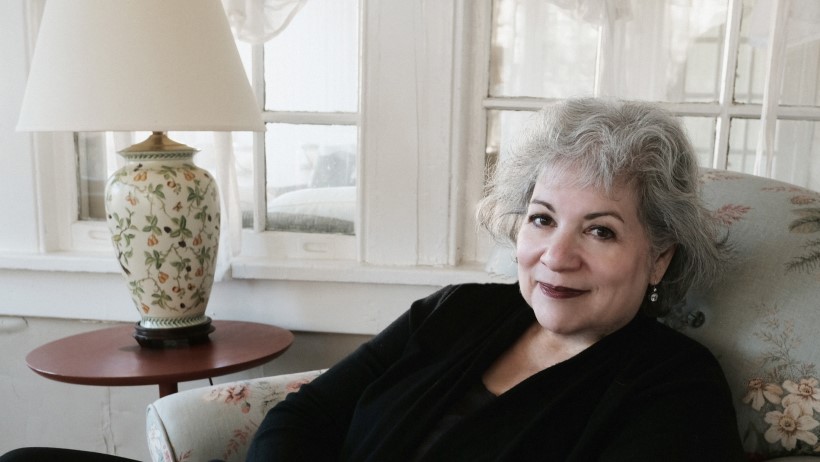If an FBI agent told you to investigate your former lover on suspicion of treason, what would you do? Jennie Fields' new novel Atomic Love features this central plot set against a rich backdrop of post-World War II Chicago, complete with espionage, nuclear warfare, and a world where women had to fight for their place.
"I consider the book a bit of a love letter to Chicago," said Fields, who was intrigued by exploring the city in an era not often visited in books. The author wanted to expose the post-war world in which men returned from Europe and Asia with PTSD and war injuries and women--who had been employed in a variety of careers while the men were deployed--lost their fulfilling jobs. "There were a lot of people smiling, but not a lot of people feeling happy," Fields said, and in Atomic Love , she sought to tell the stories of people like these.
At the heart of the story, "I wanted to write about two birds with broken wings--bad experiences with love and in the war--that could heal each other," she said. The central romance of the book brings together Rosalind and Charlie. Rosalind is a female physicist who worked on the Manhattan Project but abandoned science after the war's deadly consequences. Charlie is an FBI operative and former prisoner of war whose flashbacks, nightmares, and injured hand impact his ability to live a normal life.
They meet when Charlie asks Rosalind to spy on her ex-lover Weaver, whom he suspects of feeding nuclear secrets to the Soviet Union.
All three major characters are based on historical figures. There was a man at the University of Chicago who the FBI knew was a spy for the Soviet Union. There was a young woman named Leona Woods working on the Manhattan Project, a protegee of Nobel Prize winner Enrico Fermi. Although Fields was inspired by these real people, especially Woods, "I wanted to tell my own story, not her story," she said.
Fields was also inspired by her mother, a biochemist in the late 1940s who was expected to give up her job when she got married and mourned the loss of her career for the rest of her life. While she still worked at the University of Chicago, her coworker--also her cousin and best friend--had worked on the Manhattan Project, but kept her secret until she died. These two stories "fascinated me," said Fields, who dove into research, like reading Woods' diary and newspapers and magazines from the time.
These magazines were rife with references to women being happy homemakers, a theme Fields wanted to explore through Rosalind and other female characters in the book. Many women felt unfulfilled and underappreciated when their careers abruptly ended and they were unable to express these feelings, leading to depression and loss of purpose even if they seemed happy on the surface.
Charlie's encouragement of Rosalind's passion for science is one of many ways Fields tackles this issue throughout the book, noting that since Rosalind lost her scientific career, "she'd lost an essential part of who she was; it's essential that she finds science again before she can love fully."
Fields' and her characters' love of intellectual exploration is partially inspired by her Jewish roots. Growing up in Highland Park, Fields attended North Shore Congregation Israel and became inspired to follow her passions.
"Judaism has always encouraged women--and everyone--to explore," she said. "Judaism says we want you to be the best you can be, and education is your best friend."




.jpg)



